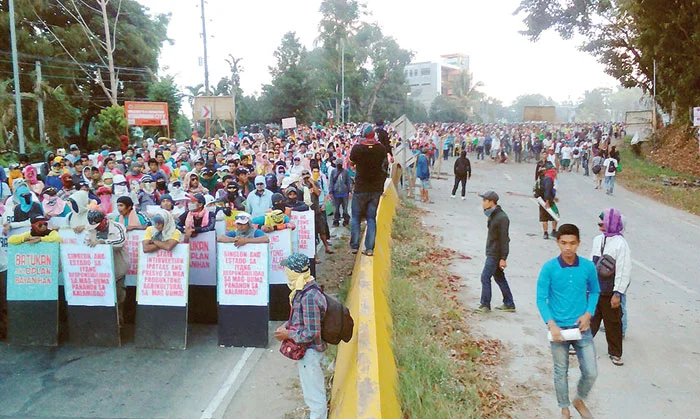Image courtesy of Philippine Lifestyle.
The Philippine police may have used unnecessary lethal force in breaking up a demonstration by farmers in Kidapawan City on April 1, 2016, Human Rights Watch said today. The police used batons and guns against the protesters, including women and children, some of whom threw rocks at the police.
Darwin Sulang, 22, and a bystander, Enrico Fabligar, 30, were fatally shot, and dozens who were injured required hospitalization for gunshot and other wounds. The police also reported injuries to their officers. Police have detained 79 protesters and charged 74 of them with offenses including assaulting a police officer. Three separate investigations into the incident are underway by the official Commission on Human Rights, the Philippines National Police, and the Senate Committee on Justice and Human Rights.
“The Philippine government needs to determine why the police found it necessary to fire at protesters,” said Phelim Kine, deputy Asia director. “Some protesters were throwing stones, but lethal force may only be used as a last resort to save lives.”
Human Rights Watch interviewed eyewitnesses to the protests, and called for the government to ensure that investigations into police use of force are credible, transparent, and impartial.
Some 6,000 protesters, primarily farmers and supporters from drought-stricken areas in North Cotabato and Bukidnon provinces on the southern island of Mindanao, gathered in Kidapawan City beginning March 28, calling for government food aid and other assistance. On March 30, the group protested by blocking the main highway into the city. On April 1, Philippine National Police personnel, some with riot shields and helmets, led an operation to clear the protesters from the road, backed by a Special Weapons and Tactics (SWAT) unit equipped with military-style body armor and M-16 assault rifles.
Read the rest of the story here.
News story from Human Rights Watch.

